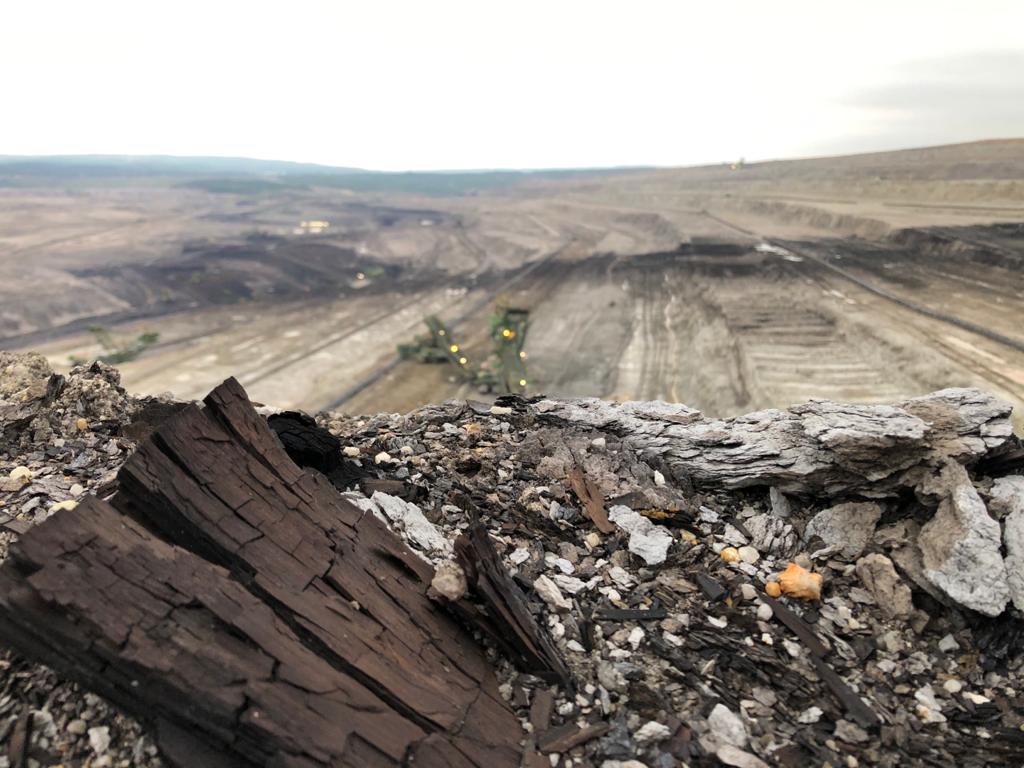Court suspended the proceedings on the Turów mine. Mining in Turów will not be stopped for the time being.
The Administrative Court suspended the proceedings on the complaints of environmentalists. The Warsaw Regional Administrative Court (WSA) suspended them until the formal conclusion of the application for amendment of the contested environmental decision. This is a decision that was the basis for the issuance of a license for the extraction of lignite coal by the Polish Energy Group (PGE).
The Turów case is on hold. On Thursday, the Regional Administrative Court issued a ruling on the environmental decision of the Turów mine, challenged by environmental organizations. The finding of the decision as defective could have an impact on the issue of the mining concession for PGE. For now, the court will not hear environmental complaints. On Thursday, the court decided to suspend the proceedings until the motion submitted by PGE GiEK is granted.
The complaint against the environmental decision-issued by the Director General of Environmental Protection (GDOŚ) in September 2022-was filed by Frank Bold Foundation, Greenpeace and EKO-UNIA, to name a few. These organizations have complained about the investor’s report on the impact on the environment, which was the basis for the decision by the GDOŚ. The decision of the WSA on the environmental decision will affect the issue of the concession for the mine. Anna Moskwa, Minister of Climate and Environment, commented on the case. „The battle for Turów continues. The Provincial Administrative Court decided today to suspend the judicial proceedings. The concession will remain in force until 2044 and until the operation of the mine complex is nolonger at risk,” she wrote on Platform X (formerly: Twitter).
„The court’s decision could not have been different, but the way the case is handled by the GDOŚ is striking. It is scandalous how actions that can accelerate Poland’s transformation and transition away from fossil fuels are being delayed in this matter. We are convinced that the functioning of the Turów mine and power plant until 2044 is not only a huge damage to the environment and climate, but also a real social disaster for Bogatynia and the surrounding area. Therefore, the government should finally stop ignoring the problem and prepare a serious vision of a post-carbon future for the region,” says Agnieszka Stupkiewicz, legal adviser at Frank Bold.
„The residents of Bogatynia have been living in limbo. The government continues to delay ensuring their safe future. By pushing for the extension of mining, it condems them to dependence on one employer, and with his political games it took away from them a billion zlotys from the Just Transition Fund. We can wait for the court’s ruling on the environmental decision. But we can no longer wait for the end of the government’s carbon lies,” said Marek Józefiak of Greenpeace.
It should be mentioned that in July the decision of the Warsaw Regional Administrative Court in the case of the mine in Turów was repealed. The Supreme Administrative Court made that decision. Earlier, the Regional Administrative Court in Warsaw issued an order suspending – until the complaint is resolved-the implementation of an environmental decision regarding a coal mining concession for the Turów mine after 2026.
Polish Press Agency / Jacek Perzyński
Small atom from Poland will undergo consultations with a big opponent
The first small nuclear reactor postulated by Orlen and Synthos will undergo cross-border consultations with the participation of the Czech Republic and Slovakia. Austria, which is anti-nuclear, also wants to join in.
The Espoo Convention provides that investments which may have consequences for neighbours should be consulted with their participation. The opinions expressed in these proceedings are to be taken into account, but do not affect the process. The proposed project to build a small nuclear reactor in BWRX-300 technology in Stawy Monowskie near Oświęcim, proposed by Orlen Synthos Green Energy, will also pass. OSGE reports that the Czech Republic and Slovakia will be consulted, and Austria has also come forward. This country is opposed to nuclear power plants, but although it participated in the consultation on the large NPP in Pomerania, which is to be built using AP1000 technology, it did not block this project.
The Czech Republic and Slovakia have their own reactors and are planning more. However, it all depends on the decision of the General Directorate of Environmental Protection. „It is conceivable that, due to the different scale of potential harmful cross – border impacts, the EEAS will designate a different scope of consultation for SMR technology and a different one for the 'big atom’,” OSGE said in a statement. OSGE maintains that GE’s BWRX-300 SMR technology will not have a cross-border impact.
„This is related to the technology of small modular reactors characterized by the use of passive safety systems, that is, those that do not require continuous electricity/electricity to perform safety functions, and built – in safety features resulting from physical phenomena naturally associated with the reactor design,” the company argues. „Owning to a lower power level, and therefore a lower amount of post-separation heat and less nuclear fuel in the reactor core, the potential impact on the environment (surroundings) even in the local context of SMR reactors is small,” the company said. „The BWRX-300 reactor is characterized by unique design solutions that provide practical elimination of the possibility of severe failures. The probability of a major accident that could have a significant impact across the border is very low, below the limit acceptable in Polish and international requirements,” the statement continues.
„In addition, the BWRX-300 reactors are designed to ensure that the isolation function of radioactive substances is maintained, in such a way that any consequences of failure that could potentially lead to early or large releases of such substances are virtually eliminated,” the press release went on. OSGE would like to have its first small-scale reactor later this decade. However, it has to go through a tedious administrative procedure, like any nuclear project.
OSGE / Wojciech Jakóbik









